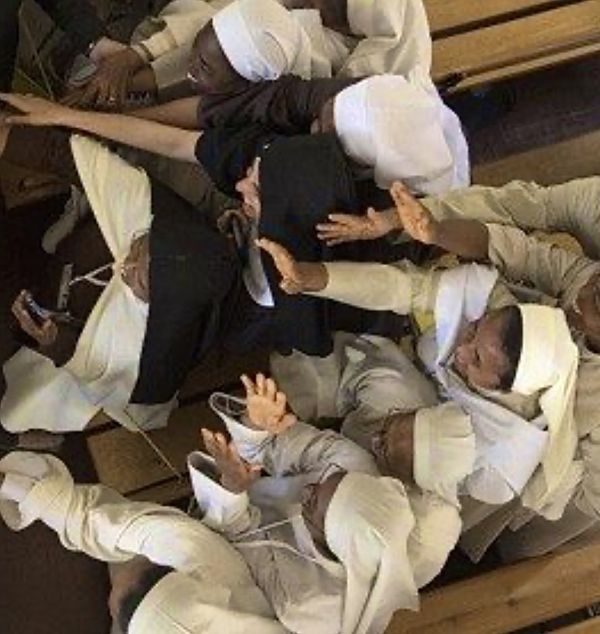In today's Gospel, Jesus tells parables about the Kingdom of God, drawing inspiration from elements of nature: mustard seeds and yeast.
With natural and real connections, he explains the nature of the Kingdom.
Francis and Clare of Assisi were two mustard seeds that grew in humility and obscurity and became trees so large that many creatures found shelter in their branches.
Specifically, the papal bull of canonisation «Clara Claris praeclara» says this about Clare:
«This was the tall tree, stretching towards the sky, with outstretched branches, which produced sweet fruit in the field of the Church [...] and in whose pleasant and pleasant shade many followers flocked from all over, and still flock to taste its fruit» (FF 3294).
The Kingdom of God finds its development in these unique metaphors, of which the Poor Man of Assisi and the recluse Clare are vivid and concrete witnesses.
But Francis, like Jesus, also spoke to his brothers in parables. The Sources attest to this in various passages.
When he wanted to make them understand the path that awaited them in order to welcome the Kingdom of God, he recalled various parables from the Gospel.
We recall one of many with which he announced the Word entrusted to him by the Lord.
When he presented himself to the Pope, Jesus made him understand how he should express himself.
"He told the Pope how God had suggested to him the parable of a rich king who had married a beautiful poor woman with great joy and had children who looked like their father, the king, and who were therefore raised at the king's table.
He then gave the interpretation of the parable, coming to this conclusion:
'There is no need to fear that the children and heirs of the eternal King will die of hunger, for they, like Christ, were born of a poor mother by the power of the Holy Spirit and were begotten by the spirit of poverty in a poor religion.
For if the King of heaven promises the eternal kingdom to his followers, how much more will he provide for them the things he gives without distinction to the good and the bad."
The Vicar of Christ listened attentively to this parable and its interpretation and, filled with wonder, recognised without a shadow of a doubt that Christ had spoken through that man.
But he was also reassured by a vision he had at that moment, in which the Spirit of God showed him the mission to which Francis was destined.
In fact, as he recounted, he saw in a dream that the Basilica of St. John Lateran was about to collapse and that a poor man, small and despicable in appearance, was supporting it, putting his shoulders under it so that it would not fall.
"Truly," concluded the Pope, "this is the one who, through his work and his teaching, will support the Church of Christ" (FF 1064).
"Relying on divine grace and papal authority, Francis, full of confidence, set out for the Spoletana valley, ready to practise and teach the Gospel" (FF 1065).
These parables are also a narrative of the coming of the Kingdom of God, its expansion in the mustard seed of Francis and Clare, and their incredible developments.
Monday, 17th week in Ordinary Time (Mt 13:31-35)












